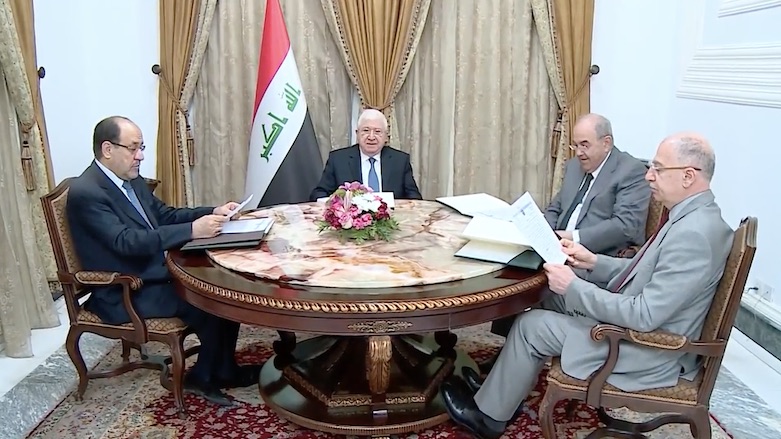Iraqi President and VPs discuss Tigris water crisis, elections

ERBIL (Kurdistan 24) – The post-election political climate and the issue of low water supply to the Tigris River which is causing panic among the public was the primary focus of discussion in Iraqi President Fuad Masum’s meeting with all three of his Vice-President’s on Sunday.
According to a statement by the President’s office, Masum met with Vice-Presidents Nouri al-Maliki, Ayad Allawi, and Osama al-Nujaifi at Qasr al-Salam (Peace Palace) in the Iraqi capital of Baghdad.
The leaders reiterated “the importance of the review of all complaints and objections in regards to the election results by the relevant judicial authorities to achieve justice,” the statement read.
The complaints must be reviewed “to ensure the results give everyone their rights, and to ensure respect toward the will of the voters to help in reaching a strong and constitutional parliament and government.”
In another statement on Thursday, Masum explained that those who want to challenge the results of the May 12 Iraqi parliamentary elections have to rely on the government’s judicial branch.
The letter came after several members of parliament voted on a resolution that sought to cancel some ballots and manually recount 10 percent of all the votes.
Additionally, upon a 25 percent discrepancy between them, they demanded a new election, after which three Kurdish parties criticized the President’s “inaction” on the matter.
In another part of the meeting, the issue of low water levels in the Tigris due to Turkey and Iran restricting water flow to the river which locals in northern Iraq are highly dependent.
The participants stressed “the necessity of looking at the issue with strategic responsibility and continued dialogue with the relevant Turkish authorities through common interests to guarantee justice in the way the natural resource is divided.”
Editing by Karzan Sulaivany
